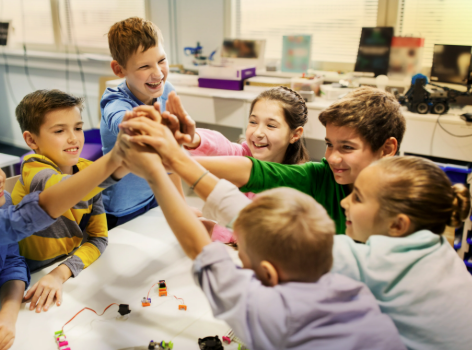In education, success isn’t solely about mastering academic content—it’s also about understanding oneself and others. Emotional intelligence (EI), the ability to recognize and manage emotions, plays a crucial role in how students learn, interact, and grow. Personalized learning, which tailors education to individual needs and strengths, creates an ideal environment for developing emotional intelligence in meaningful ways.
Understanding Emotional Intelligence in Education
Emotional intelligence includes five key elements: self-awareness, self-regulation, motivation, empathy, and social skills. These skills help students navigate challenges, collaborate effectively, and develop resilience. Personalized learning supports each of these areas by placing the learner at the center of the experience.
Self-Awareness Through Reflection
Personalized learning encourages students to reflect on their progress and learning styles. With tools like journals, learning logs, and feedback loops, learners can better understand their emotions, identify stressors, and recognize moments of growth. This promotes greater self-awareness, a foundational component of emotional intelligence.
Self-Regulation and Goal Setting
Through personalized learning paths, students often take more responsibility for setting their goals and managing their time. This autonomy fosters self-discipline and emotional regulation, as learners navigate how to overcome distractions, manage frustration, and stay focused on their objectives.
Motivation in Student-Centered Environments
When learning is aligned with personal interests and goals, students become more motivated. Personalized learning taps into intrinsic motivation by letting students explore subjects they care about, work at their own pace, and celebrate small successes along the way.
Empathy Through Collaborative Projects
Personalized learning often includes peer collaboration in flexible group settings. These experiences encourage students to listen actively, appreciate diverse perspectives, and build empathy. When students are given a voice in how they learn, they’re also more likely to value the experiences and emotions of others.
Building Social Skills
In a personalized classroom, students participate in discussions, peer reviews, and group problem-solving. These interactions help strengthen communication and teamwork. Teachers also model respectful dialogue and guide students in resolving conflicts constructively, reinforcing positive social behaviors.
Conclusion
Personalized learning is more than just a pathway to academic success—it is a nurturing ground for emotional growth. By empowering students to understand themselves and connect meaningfully with others, it helps build the emotional intelligence necessary for lifelong success. When emotional development is woven into learning, education becomes a truly holistic experience.














